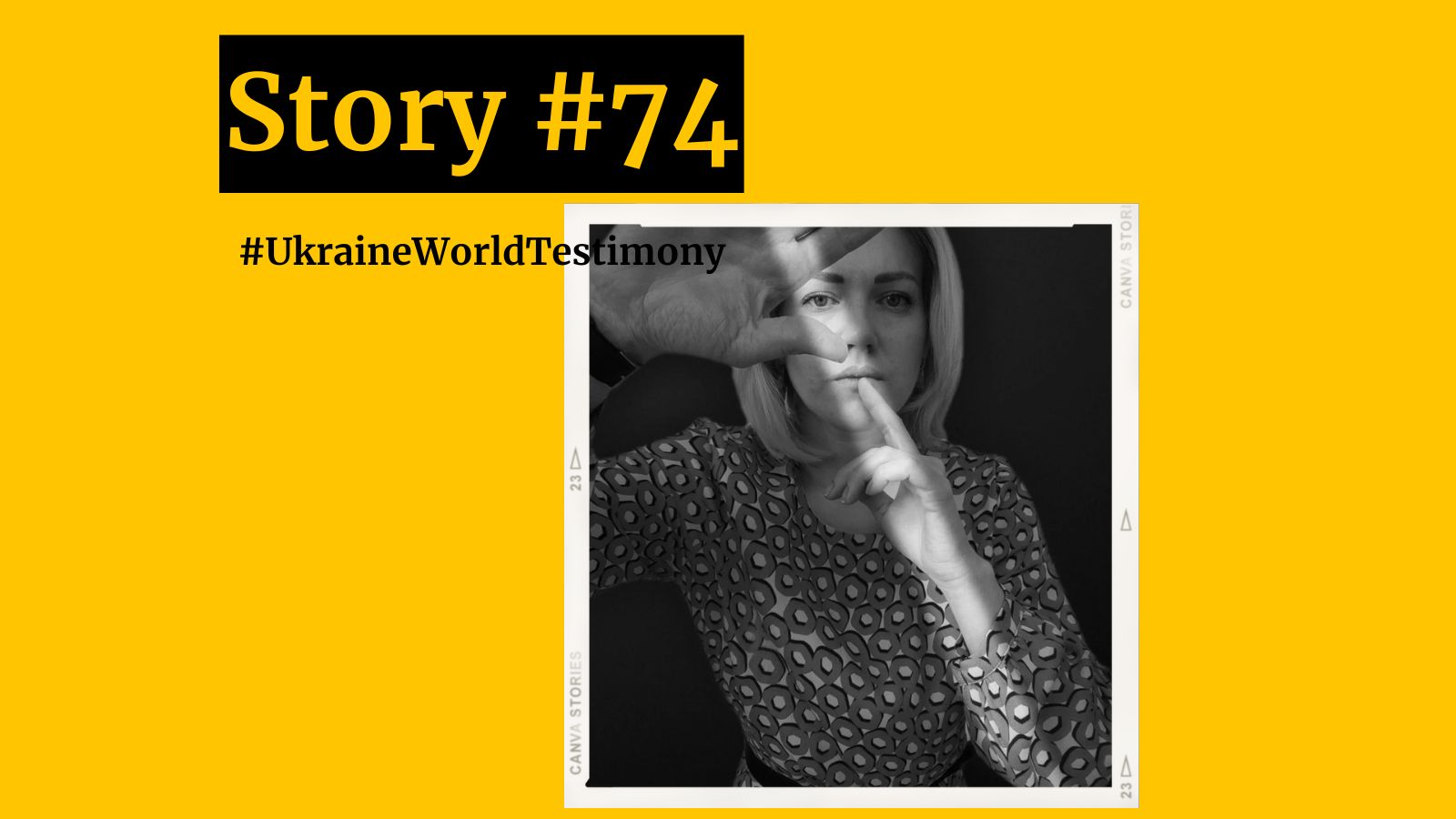
On February 23, 2022, late in the evening, Viktoria spoke to her friends about how war was impossible. She simply didn't believe such cruelty and military aggression were possible in our time. But at 5 am on February 24, Viktoria received a call that a full-scale war had begun.
Outside the window, explosions and sounds of helicopters and fighter jets could be heard. Viktoria asked her mother what they should do now, but she didn't know.
"At 6 am, we were already standing in line for a gas station, and then an air raid signal sounded. It was the first air alarm in my life, and along with it, I was completely confused about what to do. People started running to the gas station building, but it clearly wouldn't have saved them if it was hit," Viktoria recalls.
Then Viktoria bought groceries in a store, and only on the sixth day of the war when the Russians occupied Kherson, did she realize that she had bought the wrong things. However, to tell the truth, people then didn't know what to stock up on. They were preparing to spend a few days in a bomb shelter instead of spending 8 months under occupation.
Viktoria admits that she thought that everything would be over in about a week. However, this didn't happen, and she began to count the days: "1, 2, 3, 9,16, 33... My counting of days ended on the 98th, and then we began to count the months..."
In the first months of the occupation, Viktoria refused to believe it was happening and often thought that it was all a dream. However, she later came to accept and understand that there could be no agreements with the Russians. Ukraine must win this war.
On March 1, the Russian army entered Kherson, and the city began to experience real hell.
The first tragedy happened in a park when men from the territorial defense met Russian tanks with Molotov cocktails. They were too far away to hit the tanks, but the occupiers shot them with heavy weapons. The men's heads and parts of their bodies were blown off. Some of them still cannot be identified.
Then the Russians started shooting at civilians. A family with children was just walking down the street, and they shot them. A car was driving, and they shot it. According to statistics published on the first day of the occupation, 150 Kherson citizens were shot. However, their bodies were not allowed to be taken from the street for three days. The bodies were only taken when a local priest managed to negotiate with the occupiers to bury them himself. The Russians did not allow ordinary Khersonians to bury anyone.
"We tied white rags to our cars to somehow protect ourselves from being shot. The Russians shot whole families who tried to evacuate. Or even worse, the Russians killed a father and a son in a car but left a mother and daughter alive. How can they live after this?" Kirilova recounted.
Then the occupiers began taking people "to the basements" and torturing them: they pulled out teeth, inserted needles under nails, and used electroshocks. Prisoners were lucky to be allowed to use the toilet once a day.
In a cell designed for 4 people, the Russians would hold up to 15. Some people didn't even have the bag taken off their heads. Those who managed to survive this torture were unrecognizable. They were just silent and didn't want to say anything.
"Unfortunately, in my personal opinion, all those who encountered the "Russian world" in full are now mentally injured. And I'm also among them," says Viktoria.
Then the Russian occupiers began to kidnap people for ransom. The lists provided by the collaborators played a big role in this. The Russians hunted pro-Ukrainian and "important" citizens based on tips from collaborators.
"The fact that we were liberated is a great joy," says Viktoria, "But don't forget how many friends and acquaintances from Kherson still remain in torture camps in the occupied territories. We are yet to learn how many people have died. Damn you, Russian executioners! We will never be slaves."
This material was prepared with financial support from the International Renaissance Foundation.
